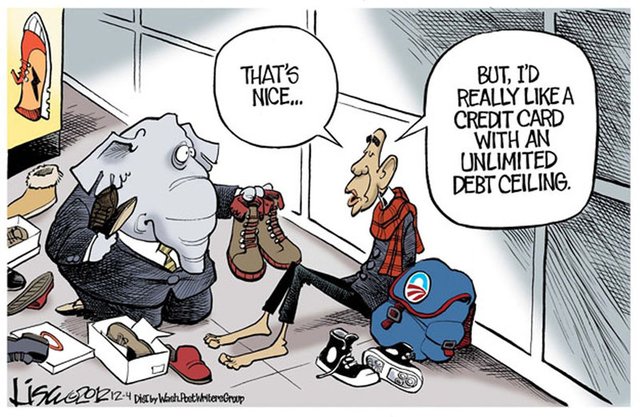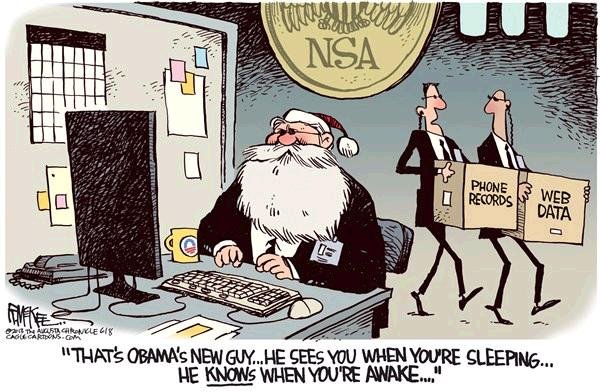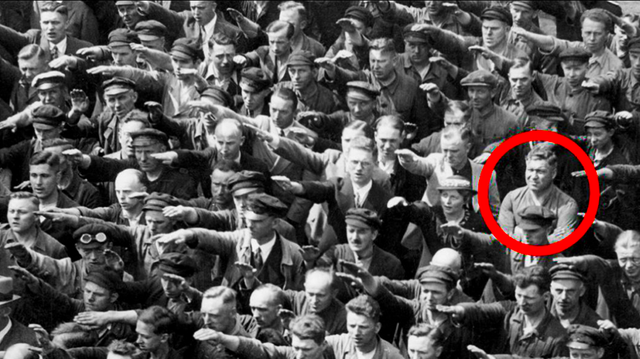The Case Against #MMT
#MMT #Money #Finance #Politics #Economics #Socialism
By Dark Philosopher

Note: This document is not meant to be either exhaustive or authoritative, but rather entirely
illustrative. The ideas, quotes presented, and other materials are for illustrative content only in an effort to dismantle knee-jerk criticisms before consideration.
Fundamental Assumptions:
• Money = Power and Influence
• Money Spent = Consumption or Employment of Resources
• Consuming Resources = Shift Economic Activity
• Government Consumption = Displaced Private-enterprise
• Government Hires = Displaces Workforce (Brain Drain)
In short: I consider the idea of releasing Government from any fiscal responsibility to be
completely short-sighted. We the People have very few abilities to check government individually, and most of our checks are collectively powerful. When politicians and pundits can simply wait out a news-cycle...
When media stops asking and social media blocks, downloads or tracks you... the old adage is still true:
Government can NOT be allowed unchecked power over the purse strings of the nation. Deficits, Debt Ceilings, Spending Caps (etc) have developed important checks and cause for pause in government administration and legislation. Where politicians play politics, suffering the ever-present popularity contest they partake; where a crisis today sets in motion legislative disaster tomorrow; where media denies while government spies, and all the rest.
Government must be held to a measurable account.
Direct Points of Contention:
• Military, Intelligence, and Defense Spending
• Research and Development Spending
• Hiring Government Workers Removes Talent
• National Jobs Program
• Federalization of New Programs and Businesses
• Government Program Efficacy, Overlap, and Value
• Police, Welfare, and Nanny States
• Other Debatable Contentions
Checks on Power:
• The Voter
• The Protester
• The Activist
I want you, my reader, to imagine for a moment a hypothetical situation:
Imagine every Citizen was given a credit card with an unlimited balance, and no requirement to pay any amount back. What would happen? Initially, we can imagine people would pay off debts, mortgages, student loans. They would purchase and consume objects they have coveted, perhaps a really expensive car, or a new home for themselves.
Then what?
What would be the systemic issue of allowing people to consume indefinitely to their hearts content? Would people still rise in the morning, making that dreaded commute to work, only to plug away a portion of their life and energy in the production of value, goods, or services for someone else?
Or would they rather skip work, taking their infinite credit card instead with them to travel the world, go back to school, or simply sit inside their newly purchased mansion and watch sports?

https://www.npr.org/2012/12/05/166513791/double-take-toons-the-cliff-all-take-no-give
Now I want you to imagine the Government had such an infinite Credit Card. At first, the government would fund all its liabilities: Social Security, Health Care, Retirement Accounts. They would spend untold sums of money on infrastructure, new schools, hospitals, universities, community centers. From the dusty shelves of bureaucrats from both sides of the political spectrum, would flow new spending projects, new investment opportunities, new social programs to assist the poor, the down trodden, the vulnerable. Then what?
Facing a government without monetary limitation, especially the United States Government, they would fund their wars, their military bases, their troops. They would fund the CIA and Homeland Security, in fact all of the 17 Intelligence Agencies, allowing them indeed endless sums of money for whatever they could justify as a cause towards their individual mandates. The Military Industrial Complex, as President Dwight D. Eisenhower so forewarned, would for the first time in all of human history, become un-tethered from constraint in its pursuits.
President Eisenhower has a lengthy speech on the topic, which I will break down over the
course of this document, into its components, so that its understanding can be better felt, especially in view of 'Modern Monetary Theory':
Simply stated, we need a military in our aggressive world. Not to invade or attack, but ever so much to deter others from invasion and attack. If our Military is seen as weak, then our defensive is just as weak. If our military is seen as strong, an unstoppable force of destruction to anyone in its wake, then its very existence and the knowledge of such is power enough in itself. Therein, in no way, do I advocate for a small, weakened, or unprepared military. Rather, like President Eisenhower, I see the immense value that comes from having strength in opposition to those who wish to exert their strength over us.

https://justtryingtosortitout.blogspot.ca/2013/07/us-national-security-agency-nsa-spying.html
As is and has come to light, our Intelligence Agencies utilize their tools through various networks at great expense to the public. Documentation has been made available suggesting everything from iPhones to Facebook to TOR itself are all compromised from the Intelligence Complex. Indeed the famous whistle blower Edward Snowden has spoken numerous times on his personal witness of these technologies:
-Edward Snowden, Fmr NSA Contractor
In fact the only limiting factor in these collective intelligence agencies is their federally allocated budgets. Whereby, released from these constraints, they will be free to pursue any and all technologies, research, and data collection in secret, with their only limitation being what they can 'justify' as pertaining to their federally defined, and shifting, mandates. These organizations are not structured or controlled by any Constitutional Limitations. Their actions are in whole and/or part, an existing and accepted violation of U.S. Constitutional limitations and recognized legal standings.
In answer to those who suggest that these federal mandates prevent or make illegal, the direct spying on American Citizens, I give to you the counter point:
It is not so much that American Intelligence Agencies can't spy on American Citizens, but rather, through international agreements and treaties on information and intelligence sharing, it is very easy to imagine that where one government spies on the citizenry of another, that spied on government so does to the opposite. Therein, Intelligence trading is literally tit-for-tat of citizen data. Assuming these Intelligence Agencies follow the Constitution as written. Yet without citizen or journalistic oversight of these programs, which entirely exist in secret, it is completely impossible to determine what is happening and to whom. Literally the only information we know is what has been illegally leaked.
To which, one could speculate that these programs are above board, and that Congressional Oversight and the courts provide appropriate jurisprudence to these issues. Except these agencies have been caught spying on, and lying about spying on, not only American Citizens, but sitting Senators, Presidential Campaigns, and in all truth, probably everyone. For the NSA's work-around the 'Constitutional' problem is simple: Download all Metadata from the various ISP's and Cell Service Providers, then justify individual searches. These programs run on 3 month intervals. Yet, I'll leave you
to google it yourself to read American Journalists discuss these issues (Google – NSA Spying, NSA Lies, NSA Tools, etc).
-Glenn Greenwald, Journalist
-Osama bin Laden, Fmr Terrorist
I include Osama here because it's both humorous in context, while also making a valid point. CNN video still exists, along with multiple stories regarding the naval carrier where he was supposedly dumped at sea, and the Navy Seal unit that supposedly captured and killed him. No witness testimony, photography, or the like has ever been released.
What isn't important is 9-11 to this conversation, but rather, the italicized print. The fundamental point, like in history and all governments, is not that there is an enemy or a reason to fear, but rather, what actions will be taken and what rights removed, because of that fear. Historically speaking, even the Roman Empire used the 'Terrorist' threat to bolster their troops and scare their citizenry. Whereby, it doesn't matter how large the military is, or what technologies they have, when a 'Terrorist' can be anyone. The current push by these Intelligence Agencies is 'Home-Grown Terrorism'. Therein, the idea is to 'legally' extend their spying technologies to directly spy upon American Citizens, instead of lying
about NOT spying.

At this point, government and the private sector's involvement in Research and Development is budget constrained. Whereby, the government, by department, seeks credentialed researchers and scientists to conduct research on their behalf, providing the funds that are allocated by Congress, Executive Departments, or Arms-Reach Organizations.
The problem with this system lies in “The Expectation of Result”. Whereby, Scientists and Researchers must align to institutions and government programs to produce results under specified parameters, and at times, per-conceived results. Research which falls outside of these parameters is delayed, buried, never initiated, or has its funding cut.
To those who argue this is limited or non-existent, there are literally guides online, for researchers, on choosing particular Institutions and Government programs and how to align ones values with the expected 'vision' of the program's funding. Furthermore, this issue is so prevalent in modern science, some researchers literally spend their
lives fact-checking previously published works. Various forms of bias can be used from statistical group size manipulation, to directly skewing data in order to favor the organization who signs the researchers pay-cheques, among many others. Some of these violations could be seen as minor misconduct, others more serious, like attempted cover-ups of data in pharmaceutical trials and the like.
https://explorable.com/research-grant-funding
Reported by Joel Lexchin, Published in New Scientist.
The counter-point to this is that Government needs to take over and control MORE research in these areas, such that the current estimate on research from the government is about 36% of all research in certain key areas.
To wit, I'd like to direct you to the CATO Institute, who has done background research on the possibilities of this, including this interesting example of how bias enters Government Funded Research:
Moreover, there is the possibility of cascading amplification on a very large scale and over multiple biased stages. Here is an example of how it might work.
- An agency receives biased funding for research from Congress.
- They issue multiple biased Requests for Proposals (RFPs), and
- Multiple biased projects are selected for each RFP.
- Many projects produce multiple biased articles, press releases, etc,
- Many of these articles and releases generate multiple biased news stories, and
- The resulting amplified bias is communicated to the public on a large scale.
https://www.cato.org/publications/working-paper/government-buying-science-or-support-framework-analysisfederal-funding
Google:
• Funding Bias, Funding Outcome Bias, Funding Publication Bias, Two-Tier Research, Government Funding Bias, etc
I won't go too in depth on this topic as I can only assume the above is obvious. Total numbers
on government employees is a fluctuating number, which includes Federal, State, and Local
governments. The approximate number of all government employees is about 22 Million workers. Minus from that education and postal workers brings the number to around 11 Million. What's important here is these numbers are under a fiscally-concerned government apparatus. Expect this number to swell without concern of deficits.
-Isaac Asimov, American Author

https://www.bloomberg.com/view/articles/2018-04-24/federal-job-guarantee-program-might-be-a-big-help
To start, a quick history – The Civilian Conservation Corps, under FDR, was a Federally created program to employ young adults in a semi-military style corps. Jobs included digging ditches, draining bogs, and other arduous, laborious tasks. The idea was to employ some of the millions of out of work adults during the 30's depression. Another variant of this program was employing artist types, who traveled the country to entertain.
Under #MMT, this type of program is being laded as beneficial to society, when in fact it does little to the individuals employed within it, requires younger workers due to the physical demands, and has historical references which aren't so pleasing.
This isn't a new idea in our current era, as President Obama had previous ran on this program during his election. Videos can be found regarding his promotional videos, but the quote is as follows, which I can actually recite from memory, as the memory itself was beyond shocking:
objectives that we’ve set. We’ve got to have a civilian national security force that’s just as
powerful, just as strong, just as well-funded.”
President Barack Obama, 2008
To any history buffs reading this document, I'm sure you realize the dangers of this statement. To those who don't study history, or disagree as to the negatives, shall we consider:
We can explore this idea as the private-sector already provides an answer: Worker Placement Agencies, (Temp Agenices, or sometimes Recruitment and Staffing Agencies). When these agencies are deployed upon smaller areas, and assuming success, these agencies become gatekeepers of jobs and employees. The difficulty here is this changes multiple dynamics, sometimes for good, sometimes not. The risk of the Agency becoming first choice or a strong secondary option to hiring workers and managers is this:
• Potential monopoly over coveted, select, or regionally important employment
• Middlemen entering into a private agreement between employer/employee
• The Agency collects payment on behalf of the worker and makes a profit
• Workers can be shuffled around, perhaps not gaining valuable or lasting skills
• Circumvention of employment law in some areas
• Potentially devastating upon Entrepreneurs, in 'Gig Economy', On-call, or Small Home-Business which may utilize short-term or job specific contracts
• Etc
Replace temp agencies with Government Temp Agency. My only counter to this point would be a TEMPORARY Government Temp agency in aid of national/massive industry transitions, severe economic downturns (1930's etc) or perhaps even times of war. Government could easily become the employer of choice, if the program is any level of success, and therefore, as I said, screw up the dynamics.

http://radioopensource.org/survivors-guide-tyranny/
Unchecked Power of the Government isn't always related to specifics of the constitution.
Checks on Power Include:
- Voters
- Public Outrage
- Political Will of Politicians
- Fiscal Limitations
- Oversight Committees and Officials
- Constitutional Limitations
- Party Politics
Voters
Political Action by the public can be summarized in 3 distinct avenues:
- Voting
- Protesting
- Activism
Federal Presidential Election:
The voting public historically has low voter turnout to the polls. In various times this was related to racism or woman's suffrage. Voter turnout technically is broken into its governmental elections by: Federal, State, and Local elections. For this, were just going to consider Federal numbers, but it should be noted that State numbers, as it relates to total eligible voters, trends much lower in some cases.
Eligible Voter turnout for the 2016 Presidential Election was 55.5% (Estimated). The less voters that vote, the more voting weight each vote has in comparison to the total eligible, giving each vote an approximate weight of 1.8 votes. (See, Voting Matters)
Midterm Elections:
2014 Midterm elections were a disaster for total votes cast. A 'USA Today' article, which I will link below, is summarized by the headline: “Midterm Voter Turnout Drops to 72-Year Low” In continuance -
-USA Today Article
Which means, for every vote cast in the midterms of 2014, each singular vote carried a weight of approximately 2.7 Votes when weighted against the total eligible. Let that sink in for a moment if you will...
Also note, 6 States had LESS than 30% of eligible voters turn out. Literally, 37% (national average) of all eligible voters decided who would set public policy, from the seats of Congress, for the entire nation of the United States.
President Barack Obama, In Response to 2014 Turnout
https://www.usatoday.com/story/news/politics/2015/03/20/poor-voter-turnout/25082721/
Yet, I'm not going to lecture on voter turnout, because it simply 'is what it is'. As long as ONE vote is cast per district, democracy continues; there is no MINIMUM number of votes. Even if ONE vote accounts for millions of opinions. What is important here is rather why people don't vote, which is usually due to unawareness of on-going political elections, financial reasons, or the most dangerous of all: Political Apathy.
Whereby, and I will keep this brief to control length – Regardless of the reasons why people don't vote, a lack of a voting public signals to not only public officials but also the public at large, that people aren't paying attention, and most certainly are not involving themselves to prevent or instigate action politically. So the idea that 'voters' will control or check government power is absolutely false.
Voters make up 37%. Non-voters (who are eligible) making up the remaining 63% of public opinion, don't vote. This is literally the case of the minority of the citizens injecting their politics upon the majority of citizens. Very dangerous over the long term.
orders later; in a dictatorship you don't have to waste your time voting.”
Charles Bukowski
The crux of the argument here is not voter turnout, but rather, voter effect. Whereby, Federally speaking, voters only get to speak twice in 4 years. Once during the Presidential Election, once during the Midterms. These votes, which given the two-party system, require choosing either to encourage one political party, or to not vote at all. The problem with this idea is Ideology vs Issues. For in an election cycle, candidates put forth Ideology and some contentious social issues (Abortion, Housing, etc), and ask for your support. What they don't do is supply/debate ALL the issues that they seek to have debated and legislated over the course of the next 4 years, but rather ask for the 'public trust' that these candidates will follow their promises, their ideology, and vote on the issues on said basis. Most issues are never brought up during campaigns, and are rather only discussed while the legislation is being drafted or voted upon, and only during that particular 'News Cycle'.
Furthermore, there are many issues which both Political Parties agree with each other, whereby the public is not given a difference of choice. For simply put, if ALL sides agree to the same set of general policies, there is no division, no debate, and no choice. The only debate is on the, at times pointless, details.
Examples of areas or issues in recent history where both parties in essence agreed:
• Banker Bailouts
• The Patriot Act
• Nuclear Power
• Iraq War
• 'National Security' Issues
• Omnibus Fiscal Budgets
• Many More – Google Bipartisan Voting, or Voting Records
Note: There are of course radicals on either side of the spectrum which firmly hold ideology, regardless of its positive or negative effects. A more commonly known radical group being the Tea Party candidates, or Grover Norquist's 'No Tax Increase Pledge' which was signed by many in Congress. One also has to remember there are many, many, sub-groups of congress on all sorts of issues, examples including: Cryptocurrency Caucus, The Black Caucus, and others. Not saying these are bad, merely that they exist without debate or in some cases, knowledge of the public. By further binding adherence to other causes, there is division created from voters, and from parties.
More historical cases worth mentioning are Democrats working with Ronald Regan's administration, Republicans working with Johnson's administration, among others. Which isn't to say that bipartisanship is bad, but rather, on particular issues its always interesting to see how quickly ideology falls to the sidelines. The trouble here is – where there is no ideology to separate the two political parties, then there can be no debate. For both parties seek, fundamentally, the same thing (Power). The only difference between them is 'How do I look better to the voter than my opposition'. Whereby, even if a political party with a majority passes legislation that is otherwise abhorrent, it is very, very difficult to remove that legislation (See Removing – The Affordable Healthcare Act) once said legislation has been accounted for by government and business alike, and the political toll has been paid (The News Cycle Passes – The Public Forgets). Massive fluctuations of policy every year negatively effects economic growth, outlook, and other metrics.
Though I'm not a fan, I do like the imagery provided by David Icke when he says these ebbs and flows of policy can be summarized as “The Totalitarian Tiptoe”. The encroachment upon established law, constitutional limitations, and other balances of power can be considered nothing less. For governments are always seeking power and influence, if not for negative reasons, then simply for 'Look what my administration/office did, vote for me.'
Bipartisanship, when it counts:
“It’s an important tool for us to continue dealing with an ongoing terrorist threat,” Obama said Friday
after a meeting with French President Nicolas Sarkozy”
All Quotes from - Huffington Post Article
To summarize:
Which political party can I vote for, if I'm against the Patriot Act, illegal spying, or other invasive government programs? Which party stands for privacy, transparency, and liberty?
(Insert Countless Issues)
This is a very old concept which can be summarized as: Controlling The Message.
Protesting
-Cynthia P. Schneider
The problem with protesting has nothing to do with being heard, as the media loves a good protest. Rather the problem with protesting is after the protest has ended, the streets are cleaned, and the issues raised, like the garbage left behind, is swept into the gutter. For there exists an interesting issue with protesting, in that it is far easier to gather thousands or tens of thousands of people in one location chanting the same slogans or message. Whereas, it is infinitely more difficult to raise the public's attention to the issue, and therefore, gain the public's favor for your cause.
A great example of this would be the famous Vietnam War Protests. Originally starting on university campuses, the movement gained traction until its peak in 1968 or so. Whereas, it wasn't seemingly the protest itself that was altering public opinion, but rather, it was the death toll of the Vietnam war, the near constant coverage of the war from the traditional media, and eventually the March of the Injured Soldiers who collectively threw away their medals of honor.
Yet, even with all these events, and the instituted Military Draft, the Vietnam War held a strong polling position among those who favored the war, and those who didn't care. It wasn't until the classified information release of the Pentagon Papers that caused the eventual end of the war.

https://justsomething.co/29-protesters-really-no-idea-theyre-protesting-11-cracked/
For you see, Protesting had little to no effect on the War Policy, but seemingly rather, it was President Johnson's Administration who, and I quote the 1996 article: “systematically lied, not only to the public but also to Congress” regarding the War and pretext.
The crux of the issue is this: Regardless of how many people you gather, how loud you chant, how unified your message is... Politicians consume polls. Where we already discussed that MOST Americans suffer from political apathy – Protesting is a near pointless exercise, unless your cause already polls above 50% of the voting populous. Whereas, if the issue you are attempting to raise is in opposition by both political parties, your voice is moot, unless you can swing the political apathy polls.
Famous Protests that lead to little or no political action:
• Vietnam War Protests – 1964- Peaking in 1968
• Occupy Wall Street – September 17th 2011
• Anti-Abortion Protests - Annual
• G20 Protests – Annual Meetings since 2010
• Anti-Gun Protests – Various Instances
• Many, many others of less comparable size, all over the world.
In mid-1971, the publication of the first Pentagon Papers–which revealed previously confidential details about the war’s conduct–caused more and more Americans to question the accountability of the U.S. government and military establishments (over 50% of the population). In response to a strong anti-war mandate, Nixon announced the effective end to U.S. involvement in Southeast Asia in January 1973.
What is interesting here is even after a decade of growing opposition from the public, including violent protests, it wasn't until state secrets were released that the US Government waited another 2 years before announcing the end... Talk about patience.
-President John F. Kennedy
In the end you can protest, file lawsuits without standing in federal court, or perhaps pursue endless lobbying through the various Non-Profit political centers around the country. Unless you enjoy the majority of support, your action is near-irrelevant.
Activism
I won't cover this topic too much, except to define activism as a separate political action from protesting. Where Protesting could be considered a causal form of activism, activism would be considered an active one. Where an activist usually forms part of their political ideology as an identity marker, and therefore attacks on their beliefs are attacks on them personally. These types of persons are usually highly informed about their cause, current actions, and directives they wish to take. Whereas a protester tends more towards a causal linkage to the cause they protest, if not merely an interest in the subject. Causal persons usually can't answer detailed or sustained questioning about the cause, and
crumble under pressure.
Activism, as it relates to public policy falls into the same trappings as protesting, and usually only leads to delays from politicians until the tempo dies down. For you see, the longer a corporation or government waits, the less are the numbers who stand in the cold waiting. The benefit of being Timeless, as Corporations and Governments are, is you have infinite time to wait until your opposition goes home or dies of old-age.
Though there are successful actions under this heading, the end result is usually more delays until implementation.
Legal Activism can have successes, as the court system depends on logical arguments and standing. Yet these actions are very expensive, time consuming, and require at times extensive expertise. Along with, and the most important, LEGAL STANDING to pursue action. Whereas the courts are fairly limited/restrained in their ability to overturn acts of Congress, which is by functional design, and not necessarily a flaw.
See – Robert Kearns Patent Lawsuits Against Ford and Chrysler Company
See – Keystone XL Pipeline and other major activist causes.
See – Activist Groups such as Anonymous, ACLU, and others
Encroachment of Federal and State powers upon the Private-Sector is always a risk. Not so much in regulation, but rather in activity and productivity, literal Nationalization.
Wikipedia
Here's a Quiz...
If you believe Private Business is: illegitimate, exploitative, or a hindrance to further economic development -
You are a Socialist.
Whereas, if you believe Private Business: Is legal, good for communities, and drives economic development –
You are a Capitalist.
Whereas if you believe a mix is best, as I do, then you are a moderate of some sort.
The thing to remember is, that without competition, there is no innovation. Where one business or service serves an entire region, they have no need to attract clients, they have a literal monopoly. Where they have no need to attract, they have no need to innovate to grow or develop, cut waste and bad practices, develop relationships with their clients, and various other good management practices.
A quick case example: Private Prisons – Where a large private prison is built, through public grants and partnerships, it usually has no competition. Some of these contracts are even granted long anti-competition terms, to prevent any competition from moving into the area. Therein, since it has no concern over competition, it remains focused on cost-cutting and withdraw of services from its, albeit unwilling, 'customers'. While driving profits ever higher from the public purse. This is but an example of what happens when capitalism meets anti-competition regulations and government structures.
Another example would be Health Insurance companies, which because of regulations, are unable to compete nationally, and therefore, unable to grow their customer base, innovate, and compete for customers. This leads to some regions having fewer, if not singular, choices.
Nationalization, which is a tenant of Socialism/Communism (A Marxist Ideal), is a means of removing private ownership of business from the Private-Sector, and therefore individuals, and placing the ownership, including debts and profits, into the public's hands (government). There are many problems to this, a few of which are as follows:
• Nationalization interrupts competition, as private-enterprise is unable to compete against an
organization that isn't required to remain profitable, nor an enterprise directly funded by the
government whereby it has near limitless access to resources and capital from taxpayers.
• Governments, being political entities beholden to the public, could be tempted or forced to
support needless projects, developments, or other instances of waste as it relates to a
nationalized enterprise, which further erodes market forces - effecting production and talent.
(Playing Politics)
• Etc
For a list of nationalized companies by country:
https://en.wikipedia.org/wiki/List_of_nationalizations_by_country
An interesting article discussing privatization from Harvard Business Review:
https://hbr.org/1991/11/does-privatization-serve-the-public-interest
Another interest case study in recent history was the financial collapse of 2008 under Obama.
Here's an excerpt of one article from the NY Times (January 25th 2009)
‘Nationalization of the banks?’ ”
So far, President Obama’s top aides have steered clear of the word entirely, and they are still actively discussing other alternatives, including creating a “bad bank” that would nationalize the worst nonperforming loans by taking them off the hands of financial institutions without actually taking ownership of the banks. Others talk of de facto nationalization, in which the government owns a sizeable chunk of the banks but not a majority, with all that connotes.
Indeed, the risks of nationalization they warned about then apply equally to the United States now. The first is that nationalization can prove contagious. If the Obama administration took over Bank of America and Citigroup, two of the largest banks in the United States, private investors could decide to flee from the likes of JPMorgan Chase and Wells Fargo, or other major banks, fearing they could be next.
Now consider the effects, if you will, of near-endless deficit spending, in this particular (and frankly, the next financial crisis). Outside of political justification, there is no limit. The shear size of America's greatest banks in terms of valuation is but a single Federal Research transfer away.
What state would America be in now, having taken full control over its largest financial institutions? What investment would be possible after the world watched in awe while our government performed this 'economic service' to the people?
Most importantly, where does it stop and what precedent does this set? For we all know recessions and expansions happen in cycles. Therefore, is it the job of government to endlessly bailout institutions, organizations, entire industries, just because it has an unlimited cheque book to do so? Furthermore, assuming these nationalization programs were temporary, what investor would put money back into these industries and organizations? Knowing full well the government could just, and I quote 'wipe out shareholders' later?
Beyond which, Federalization of New Programs, the likes of which we could be hard pressed to imagine right now, is not only possible, but highly likely. Where elections carry forth new contenders, new debates, and an ever changing field of potential representatives who all seek the spotlight, what possible new ideas could be put forth, and what disastrous effects could be the result of those programs? Obviously, there is a lot of good as well, such as the possibility of single-payer healthcare and other social spending. So the question is, do these negatives outweigh the positives?
Donald Trump, 2015
I won't go too deep here, except to state that Fiscal Oversight provides a great deal of value in this regard. Micro and Macro economics don't differ here. We cut the fat, to keep the animal healthy. Whereby, under unlimited deficit spending, there would be no need to cut the fat and free the markets, unless it was to appease the political base.
I want to present a very interesting case in this regard. Though I'll leave further reading of it to you, if you so desire. Ronald Reagan during the 1980's, when I believe the whole deficit storm in media and pundits really started. His policies were questionable, but one of the aspects I find interesting is his privatization push. Making the claim that private hands make more efficient managers. As I eluded to before, I personally believe it really comes down to the particular industry in question as to HOW privatization is effective or could be effective. Equally so, it is entirely based on the level of talent, pool of workers, and compensation among many other data points that makes and breaks companies, being public or private.
Rather the major concern I would put forth is simply waste of resources. Where government is freed from fiscal concerns, so is the public from consideration of these issues.
-Steven Magee
:)
I'm not going to go into the possibilities of a Police, Welfare, or Nanny State. Except to say these are possibilities that have existed in history, exist today, and very well will exist tomorrow. Though I will say, there has been a heavy push to militarize police forces around the country. This could be seen by some as a circumvention of Federal law limitations on military being used on American soil (Posse Comitatus Act). Whereby, if the 'police' aren't classified as 'military', but they look like military, are ex-military, and have military technology... Hmm
Whereas in terms of a welfare state, I think those concerns would be fairly well founded.
It isn't hard to imagine higher deficit spending under a liberal government would increase welfare payments. Which isn't a bad thing, but the problem with welfare is it isn't enough to get ahead (Skills training, school, start a business, get a car) but if increased too much it devalues regular workers, which encourages program enrollment.
Regardless, 68 Million Americans are receiving some form of government assistance, while up to 55% of all Americans have reached into these funds at least once.
Other Debatable Contentions
• Big Government/Empire leads to more issues
◦ The bigger they get, the more they reach
• Limited or Reduced Checks and Balances on Power
• Reduced Debate over Issues – No Concern for Cost
• Unnecessary Projects and Pork Spending – Misalignment of Productive Value
• Nefarious Programs
◦ Secret Operations, Actions, Activities, Conspiracy Theories, etc
• Emergency War-Time Actions
◦ What could be done for or against the public with less concern of deficits, during emergency
times?
• Time-Testing #MMT
◦ These types of Policies haven't been tested on such a large and diverse economy with lasting
success. I'm not concerned about the first 2-3 election cycles of political promises and
platforms, I'm concerned what comes after that
The Final Question – Who is the biggest driver of economic innovation, development, activity, and production in an economy – The Government or the Private-Sector?
-Dwight D. Eisenhower, Frm President of USA, January 17th 1961
In closing, TLDR:
#MMT Must be opposed... It is a Pandora's Box that can't be closed again, without bloodshed and revolution.
We don't need private money from billionaires, the US government is 100% self-sufficient. It ALREADY IS. The Trump administration just spent 1.2 trillion into the economy without enacting any new taxes, and without causing hyperinflation. That thing you're so terrified of is already here, you're just afraid we will start to wake up to the power of public spending, and STOP or addiction to shiny billionaire dollars. #LearnMMT